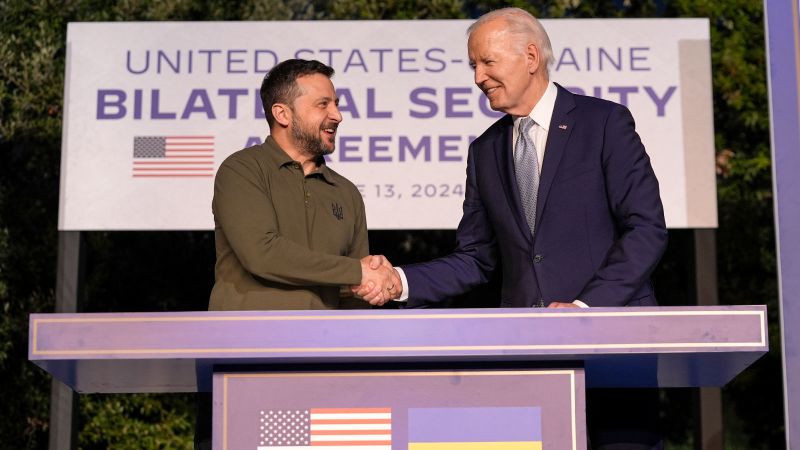President Joe Biden and G7 leaders met in Italy to bolster support for Ukraine and rush western resources to the country in the face of Russian aggression and uncertainty surrounding the upcoming US election. The agreements finalized aimed to provide Ukraine with tens of billions of dollars in aid and improve its self-sufficiency. The collective actions demonstrated resolve and creativity in the face of Russian advances on the battlefield. However, the potential for a shift in American stance if Trump were to return to office loomed large, as he has shown opposition to providing Ukraine with additional aid and skepticism of NATO.
The possibility of a Trump presidency raises concerns about the durability of the agreements made by Biden and the G7 leaders during the summit. Trump’s track record of abandoning foreign policy agreements negotiated by his predecessors, coupled with his open skepticism of alliances like NATO, cast doubt on the long-term viability of the commitments made to Ukraine. European diplomats are wary of the potential for a change in tactics should Trump return to office.
The urgency to funnel support to Ukraine was driven by the specter of a Trump presidency, prompting the finalization of a long-debated plan to provide a $50 billion loan to Ukraine using interest earned on frozen Russian assets. Although European officials initially raised concerns about the loan, the need to act swiftly in the face of uncertainty pushed the G7 leaders to overcome their differences and reach an agreement. The summit represented a strong message of support for Ukraine’s freedom and resilience against Russian aggression.
Biden’s decision to sign a bilateral security accord with Ukrainian President Zelensky underscored the long-term commitment of the United States to Ukraine’s defense and deterrence capabilities. The pact, while not a formal treaty, commits the US to continued support for Ukraine’s military and intelligence. This agreement is seen as a marker of American support for Ukraine in the face of ongoing challenges and potential shifts in US foreign policy under a future administration, particularly if Trump were to return to the White House.
The G7 summit also highlighted Biden’s efforts to consolidate support on issues such as reproductive rights, despite opposition from some leaders, including Italian Prime Minister Giorgia Meloni. The summit served as a platform for Biden to emphasize his administration’s focus on protecting abortion rights and women’s health, in contrast to the policies of his predecessor. The trip to Italy was seen as a crucial opportunity for Biden to strengthen alliances, seal agreements, and address key global challenges before the upcoming elections.
As American allies in Europe anticipate the possibility of a second Trump administration, there is a sense of trepidation and weariness among diplomats and leaders who lived through the challenges of the first term. The conversations surrounding Trump’s potential return to office are a constant theme during diplomatic visits and summits, reflecting concerns about the impact on global alliances and norms. The memories of past conflicts and disagreements with Trump underscore the need for continued efforts to solidify partnerships, address shared challenges, and navigate the shifting dynamics of global politics.


